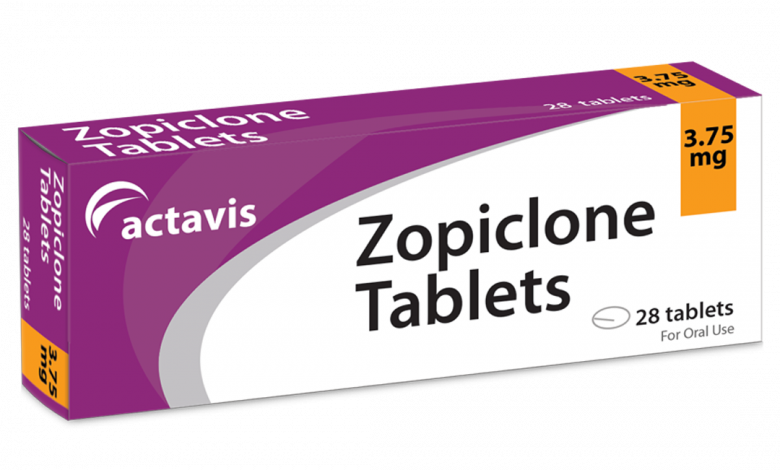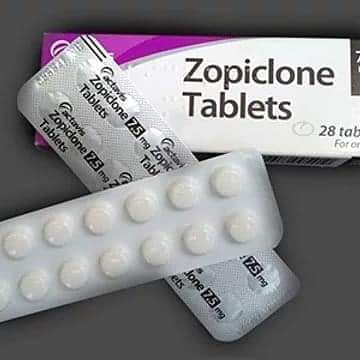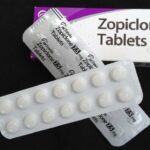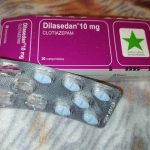Zopiclone Side Effects

Side effects are problems that occur when treatment goes beyond the desired effect. Or problems that occur in addition to the desired therapeutic effect. Any medication can have an adverse effect, whether a prescription drug, an over-the-counter (OTC) drug, an alternative, herbal or complementary therapy, or a vitamin supplement.
For a medication to get approval by the United States Food and Drug Administration (FDA), or a similar body in another country, the drug manufacturer has to list all its known adverse effects.
Adverse effects must be reported, investigated in human clinical trials, and included in the patient information leaflet (PIL). The PIL accompanies drugs and medical devices when they are sold to the public.
The FDA encourages people to report the adverse effects of medications. Adverse effects can result from non-compliance, or non-adherence, which is when the patient does not follow the doctor’s instructions.

What is Zopiclone?
Zopiclone, more commonly known by the brand name Imovane is a central nervous system (CNS) depressant used to treat insomnia (trouble sleeping). Zopiclone helps you get to sleep faster and sleep through the night.
Zopiclone is one of the so-called “Z drugs”, along with zolpidem and zaleplon, and was introduced during the second half of the 1980s as a treatment for insomnia. These drugs were developed as safer alternatives to benzodiazepines which can be highly addictive and whose use can lead to dependence.
Zopiclone was the first compound developed with a different chemical structure to the benzodiazepines but which binds to the same cell receptors as they do. Zopiclone is available only with your doctor’s prescription.
Zopiclone should be used at the lowest effective dose and only for short periods. Zopiclone is indicated for the short-term treatment of insomnia in adults.
If zopiclone is needed to manage insomnia, it should be used in conjunction with non-pharmacological approaches, such as managing expectations about sleep duration, improving sleep hygiene, modifying lifestyle factors, and addressing underlying health issues and psychological stress.
How should I take Zopiclone?
Take this medication by mouth as directed by your doctor, usually once nightly just before bedtime. Dosage is based on your medical condition, age, other medications you may be taking, and response to treatment. Be sure to tell your doctor and pharmacist about all the products you use (including prescription drugs, nonprescription drugs, and herbal products). Follow your doctor’s instructions carefully.
For oral dosage form (tablets):
- For the treatment of insomnia (trouble sleeping)
- Adults—5 to 7.5 milligrams (mg) at bedtime.
- Older adults—3.75 mg at bedtime; dose may be increased to 5 to 7.5 mg as determined by your doctor.
- Children up to 18 years of age—Use and dose must be determined by your doctor.
The recommended dose for elderly patients is 3.75 mg. The dose may be increased if the lower dose is not effective, but a higher dose is more likely to cause central nervous system side effects in the elderly.
In elderly patients, the elimination half-life of zopiclone is prolonged to approximately 7 hours, compared to 5 hours in younger adults. The risk of next-day ‘hangover’ effects such as drowsiness, cognitive impairment, and dizziness is, therefore, higher in the elderly. These ‘hangover’ effects put elderly patients at greater risk of falls, and may also affect their ability to drive.
Psychiatric adverse events, including depression, suicidality, psychosis, and schizophrenia, have been associated with the use of zopiclone. Psychiatric adverse reactions and paradoxical effects such as restlessness, irritability, and aggression are more likely to occur in the elderly.
Do not take more of this medication than prescribed because your risk of side effects will increase.
Although unlikely, this drug may rarely cause temporary memory loss. To avoid this effect, do not take a dose of this drug unless you have time for a full night’s sleep of at least 7 to 8 hours. This amount of time is needed for your body to get over the effects of this drug. For example, do not take zopiclone to help you sleep during an overnight plane flight of less than 7 to 8 hours.
If you suddenly stop using this medication, you may have withdrawal symptoms (such as stomach/muscle cramps, shaking, sweating, anxiety, vomiting, and rare seizures). To help prevent withdrawal, your doctor may lower your dose slowly. Withdrawal is more likely if you have used zopiclone for a long time or in high doses. Tell your doctor or pharmacist right away if you have withdrawal.
Though it helps many people, this medication may sometimes cause addiction. This risk may be higher if you have a substance use disorder (such as overuse of or addiction to drugs/alcohol). Do not increase your dose, take it more often, or use it for a longer time than prescribed. Properly stop the medication when so directed.
When used for an extended period, this medication may not work as well and may require different dosing. Talk with your doctor if this medication stops working well.
You may have trouble sleeping the first few nights after you stop taking this medication. This is called rebound insomnia and it is normal. It will usually go away after 1 to 2 days. If this effect continues, contact your doctor.
Tell your doctor if your condition persists after 7 to 10 days, or if it worsens.
Zopiclone Side Effects
Zopiclone may cause side effects. Tell your doctor if any of these symptoms are severe or do not go away:
• headache
• pain
• daytime drowsiness
• lightheadedness
• dizziness
• loss of coordination
• nausea
• vomiting
• heartburn
• unpleasant taste
• dry mouth
• unusual dreams
• decreased sexual desire
• painful menstrual periods
• breast enlargement in males
Some Zopiclone side effects can be serious. If you experience any of the following symptoms, call your doctor immediately or get emergency medical treatment:
• hives
• rash
• itching
• swelling of the eyes, face, lips, tongue, throat, hands, feet, ankles, or lower legs
• difficulty breathing or swallowing
• feeling that the throat is closing
• hoarseness
Zopiclone may cause other side effects. Call your doctor if you have any unusual problems while taking this medication.
If you experience a serious side effect, you or your doctor may send a report to the Food and Drug Administration’s (FDA) MedWatch Adverse Event Reporting program online (http://www.fda.gov/Safety/MedWatch) or by phone (1-800-332-1088).





